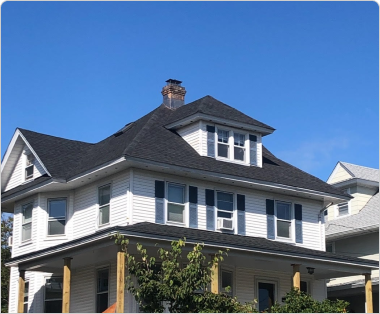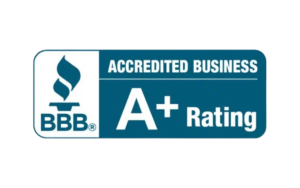The roof of your home is one of the first things potential buyers see. It is also one of the most important factors that contribute to your home’s safety and integrity. If you’re buying a new home, an inspection can help gauge the condition of the house and whether you’re giving the apt quote amount to purchase the asset.
Roofs should typically be inspected once a year. But if you’re living in a city like Milford, where the winter is tough, it is great to get the roof checked before and after the onset of the winter season. This way you can be sure about the insulation being in place and not worry about lost shingles or compromised roofing during the rainy season.
Although the roof inspection is a simple process and you won’t be required to do much, it’s good to know what you should expect. So, in this article, we cover the roof inspection process.

Pre-Inspection Preparation
If you’ve decided to get your roof inspected, the first step is scheduling the inspection. Look for a contractor that is qualified. If you’re in Milford, CT, look for contractors who are experienced there. Choosing a Milford-based roofer will allow you to get access to the knowledge that their inspectors have with regard to the climate of Milford.
Schedule the inspection on a clear day. Rainy or windy days might hinder the assessment process and waste your time and money,
What to Have Ready:
When you’re scheduled a date with your preferred contractor, you need to make sure that the access to the attic isn’t blocked. Make sure to keep the attic free of clutter so the inspector can easily check signs of ventilation, leaks, and insulation problems.
You should also provide safe access to the roof for the inspector to carry out the exterior inspection safely. If you can arrange a ladder, it can help the roofer quickly and safely reach your roof for inspection.
The Inspector’s Arrival
When the inspector arrives, they will brief you about the inspection process. They might ask you about any issues that you might have noticed about your roof so they’re not going in without any clue about your issues.
Exterior Inspection
The inspector will probably first inspect the exterior for signs of damage. They will also look for curling, buckling, or missing shingles. The vents, pipes, and skylights will also be assessed during the process for any signs of damage like leaks or holes.
The inspector will also inspect the gutters and downspouts around the roofing for leaks, drainage issues, and clogs. This is done to see that the water is draining properly rather than trickling down to your home’s foundation and doing greater damage. During the exterior inspection, the inspector will:
Interior Inspection
During the interior inspection, the inspector will assess the attic space for signs of water damage. If you have found wet containers or noticed mold and mildew in the attic, you should tell them.
If you’ve chosen a licensed roofing company for inspection, they will do a thorough check, whether or not you tell them about your observations. They will also check the ventilation and insulation levels to make sure that there aren’t any leaks or ventilation damage that will require you to invest in house repairs in the long run.
The expert will also examine the attic walls and ceilings for signs of discoloration, water stains, or sagging.
Use of Technology
Many professional and tech-savvy companies also use tools like drones and thermal imaging to make the inspection process easier and more effective. Drone inspections can help identify issues in areas that are hard to reach. Thermal imaging technology has the ability to detect temperature variations on the roof to indicate heat loss due to insulation damage.
Documenting Findings
After completing the inspection, the inspector will document their findings in a written report. This report will include a detailed description of the roof’s condition and attach photos as evidence. It might also include the inspector’s recommendations and a quotation for the roof’s repair.
Discussion of Recommendations
With the report, the inspector will also add a set of recommendations. They will likely discuss the issues they found and the recommendations they have with you. They might recommend roof upgrades or preventive maintenance to keep your house in great condition in the long run.
If your issue is high electricity bills, they might recommend that you install a new, more energy-efficient roof. If they found damage, they might recommend replacing certain sections of the roof too.
Conclusion
Getting your roof inspected is essential to upkeep the integrity of your home. But if you haven’t ever had any roofing inspection done, the first time can seem daunting. So, it’s better to go in knowing what to expect. Remember to choose a reputable roofing contractor in Milford, CT, like Advantage Roofing to ensure a thorough and accurate inspection.



